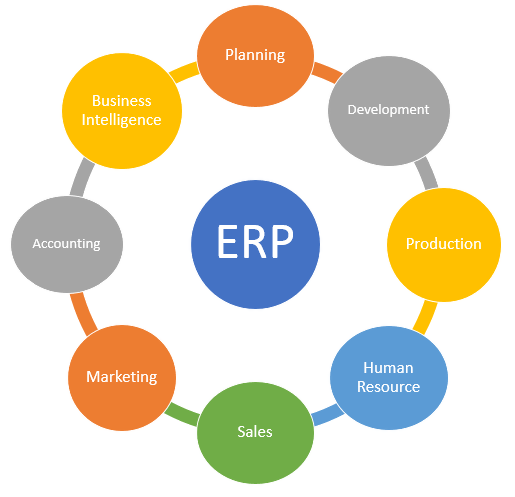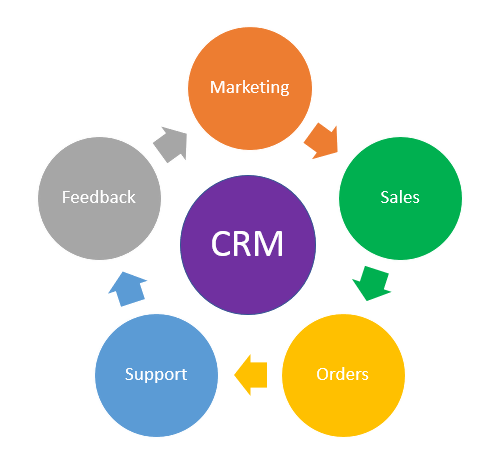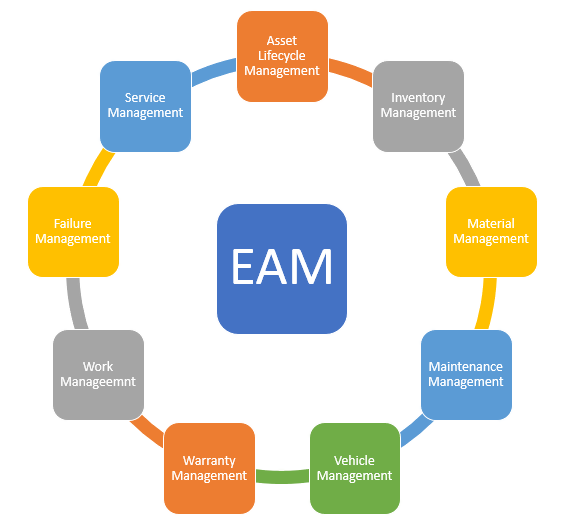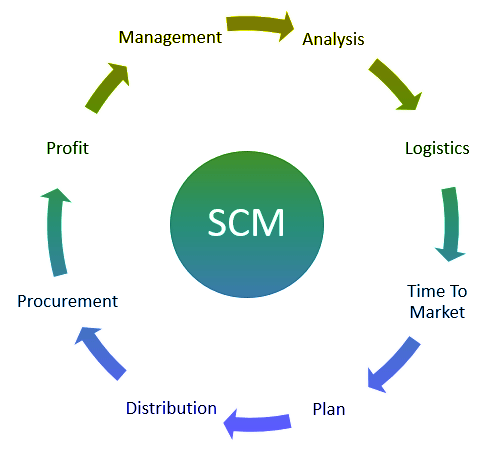When we talk about software development today, enterprise software is mentioned often. Since first enterprise software solutions proved effective at companies like Microsoft, other companies followed suit gradually. Enterprise software is primarily favored by the corporate sector, and that is why we often see big organizations make huge investments into custom software suites to elevate enterprise resource planning (ERP), logistics, customer experience, or other.
Before you decide whether you need enterprise software for your business, you should know what it is, how it works, and in what ways it would benefit your business.
In this guide, we highlight all the key details related to enterprise applications, their development, and how they help enterprises improve their operations.
What Are Enterprise Software Solutions
Enterprise software is a subcategory of application software. Also known as enterprise application software (EAS), it is similar to any other application or software software solution you know at their core. However, EAS has a different focus: solving a problem of an organization instead of an individual user. EAS aims at increasing the efficiency and output of an organization by following, following the set business logic and organization’s overarching strategy.
Organizations that use enterprise application software include commercial companies, educational institutions, charity organizations, government institutions, and other organizations.
As every company has a different approach to business operations, enterprise software solutions are tailor-made to fit their unique business needs. This means that software solutions for procurement, accounting, or product management will differ from company to company. Indeed, there are software-as-as-service (SaaS) companies offering cloud-based enterprise software platforms for different business operations, but they still offer many customization options, so that their platform would fit each company’s unique needs.
Regardless of the path you choose, each enterprise application will be integrated with your organization’s IT system, becoming its integral part.
Specific Types Of Enterprise Software
As mentioned before, enterprise software is built to address the needs of an organization related to a business process. Each business processes deals with a different aspect of managing an organization, so different types of EAP exist.
Here are the common types of enterprise application software.
1. Enterprise Resource Planning (ERP)

An ERP software application usually connects operations of different departments. The main aim of ERP software is to streamline the cooperation between them with simple digital tools for planning, procurement, document management, reporting, and so on. ERP software usually integrates sales, project management, marketing, accounting, and supply chain management operations.
2. Customer Relationship Management (CRM)

CRM software focuses on the most important aspect of any business – sales. This type of enterprise software addresses all core issues and challenges related to maintaining an effective sales and marketing workflow. A typical CRM application helps to manage orders, communication, reporting, client status tracking, feedback, as well as automate a number of sales processes. A CRM system’s ultimate goal is to help maintain an effective sales cycle yearly.
3. Accounting
Managing accounting in a large organization is always hard. The biggest challenge is establishing a consistent financial data flow from all departments. Custom enterprise software for accounting helps organizations to solve the issue with tools for data gathering and processing. These tools aid accounting experts in ledger maintenance, project accounting, budgeting, payroll management, billing, tax reporting, and so on.
4. Enterprise Asset Management (EAM)

EAM software assists in keeping a record of an organization’s physical assets and managing their life cycles. More specifically, EAM systems facilitate planning, optimization, execution, and maintenance of assets to increase their lifespan and help an organization cut costs.
To achieve that, a solid EAM system offers numerous useful features. They include digital tools for asset lifecycle management, inventory management, maintenance management, parts management, warranty management, vehicle maintenance, work order management, and so on. Some EAM tools also offer mobile enterprise asset management features.
5. Business Intelligence (BI)
Business Intelligence enterprise apps help large organizations in getting a bird’s-eye view of their business operations. The tools in BI software suite primarily help data experts to manage data mining, analysis, visualization, reporting, benchmarking, and other aspects by using existing data sets. As a result, BI software suites make data management easier and quicker for enterprises. With BI apps, an organization’s financial experts and top managers can get a comprehensive overview of the strengths and weaknesses of the business and develop effective long-term strategies for further improvement.
6. Supply Chain Management (SCM)

SCM tools allows enterprises streamline and automate core supply chain processes, including logistics. Specifically, an SCM system helps companies gather, manage, and store all the supply chain-related data. SCMs are usually built from the ground up for a particular company and aimed at speeding up processes and cutting organizational costs.
7. Product Lifecycle Management (PLM)
As product life cycle is a long and complex process that involves everything from concept ideation to building the final product, PLM software aims at helping enterprises to effectively manage every step of the cycle. Consequently, PLM software suites help employees at every stage perform their tasks easier and quicker.
Advantages Of Using Enterprise Software Systems
Here are the common advantages of all enterprise software solutions:
- Improved efficiency across the enterprise
- Increased employee productivity
- Comprehensive enterprise data management
- Impactful data insights
- Less employee errorse
- Higher customer and employee retention rates
- Increased revenue
Enterprise Software Engineering: What To Consider
At its core, the process of enterprise software development does not differ from how other types of software are developed. However, software development teams still should consider a number of important factors.
Interconnectivity
Enterprise systems usually comprise of numerous applications and tools running together and executing many tasks at the same time. Therefore, an enterprise application should have an architecture that allows for integrating it with other applications successfully. For an enterprise suite to work properly, every part should be properly connected.
Performance And Scalability
Unlike other types of software, enterprise applications should be scalable to enable company growth over time. It should also work well across all needed platforms.
Security
Large organizations have a lot of sensitive information. In case of data breach, a company risks losing customers and leading positions on the market of operation. So, an enterprise application should have multiple security levels to prevent cyberattacks, leaks, and security bugs.
Cloud Storage
Since enterprise software solutions aim at elevating business operations, these programs should ideally offer cloud storage to enable successful scalability over time.
EAS Versus SaaS
Enterprise software can be divided into two categories — custom or SaaS (we already described both above). They differ across a number of parameters.
| EAS | SaaS | |
| Customization | EAS offers more customizability | Unchangeable core features, with limited customizability |
| Data Storage | Dedicated cloud storage | SaaS providers mostly offer a single cloud store for all their clients |
| Query and Reporting | Allows for custom and complex database querying | SaaS supports only limited queries as it requires scanning a large database |
| Pricing | Expensive | Depends on the complexity of the software in question, but usually less expensive than EAS |
Enterprise Software Trends
As modern economies increasingly rely on software, enterprise software trends come and go relatively quickly. Here are the recent ones.
Microservices And Serverless Architecture
This trend involves designing software with individual shortcodes to enable software teams manage separate tasks (microservices). You can then directly deploy the shortcodes to a cloud provider, which frees developers from managing a complex architecture.
Machine Learning
Today, top-of-the-line enterprise software uses these Artificial Intelligence-driven algorithms to automate some process and operation, saving an enterprise and its employees a lot of time.
Blockchain
Since it is decentralized and unhackable, blockchain is a safe storage for enterprise data. Plus, blockchain smart contracts can automate complex solutions that involve many parties, and can be paired with other technologies (like Internet of Things) to create big enterprise systems that elevate core operations, for example supply chain management.
Mobile Applications
Both enterprises’ employees and customers rely on mobile, so if it is possible to make an enterprise software solution available as a native mobile app, it is better to do so.
Enterprise Software Market
As more and more companies grow into large organizations, the enterprise software development market keeps growing. Owing to the tremendous advantages offered by these tools, there is no sign the market will stop growing in the coming years.
According to the Global Enterprise Software Market Outlook to 2022 report, the enterprise software development market is projected to demonstrate a compound annual growth rate (CAGR) of around 5.47 percent in 2016-2022.
Besides, another report reveals that by 2024 the global enterprise solutions market would exceed $575 billion. Enterprise software solutions will be adopted on a bigger scale. The largest marketplaces in the world would include:
- United States
- Germany
- Canada
- United Kingdom
- China
- India
- Malaysia
- Philippines
- Singapore
Enterprise Software Industry
Considering the ever-changing requirements and continuous growth of enterprises, the key players of enterprise solutions market have to adapt in order to thrive. Interestingly, most of these market leaders share countries of operation.
Prominent leaders of enterprise application industry include:
- Microsoft Corporation (U.S.)
- Oracle Corporation (U.S.)
- IBM Corporation (U.S.)
- Sap Se (Germany)
- Salesforce.Com Inc. (U.S.)
- Amazon.com, Inc. (U.S.)
Enterprise Software Pricing Models
different software development companies have adopted different pricing models for their services. The most commonly employed pricing models for enterprise solutions include:
- Different outsourcing models
- Package pricing (an organization pays for customized software packages)
- Modular pricing (basic software module delivered for a fixed price with additional charges for updates)
- Per-user licensing/Per-device licensing
Popular Enterprise Software Examples
Here are some of the most popular companies that use enterprise software:
- HootSuite
- Salesforce CRM
- Zoo
- MailChimp
- Google Analytics
- BambooHR
Quick Summary
Enterprise software aims at addressing the core needs of large organizations by providing effective digital tools for different operations. Enterprise software solutions allow for cutting costs, improving employee productivity, acquiring useful insights, improving cooperation and communication between different departments, and offer other big benefits. Enterprise applications have evolved over the years since they emerged, and now use the latest technologies to help companies elevate their operations further still. Although EAS is expensive, its benefits are big and clear, and that is why enterprise software is used and provided by the world’s top companies.
